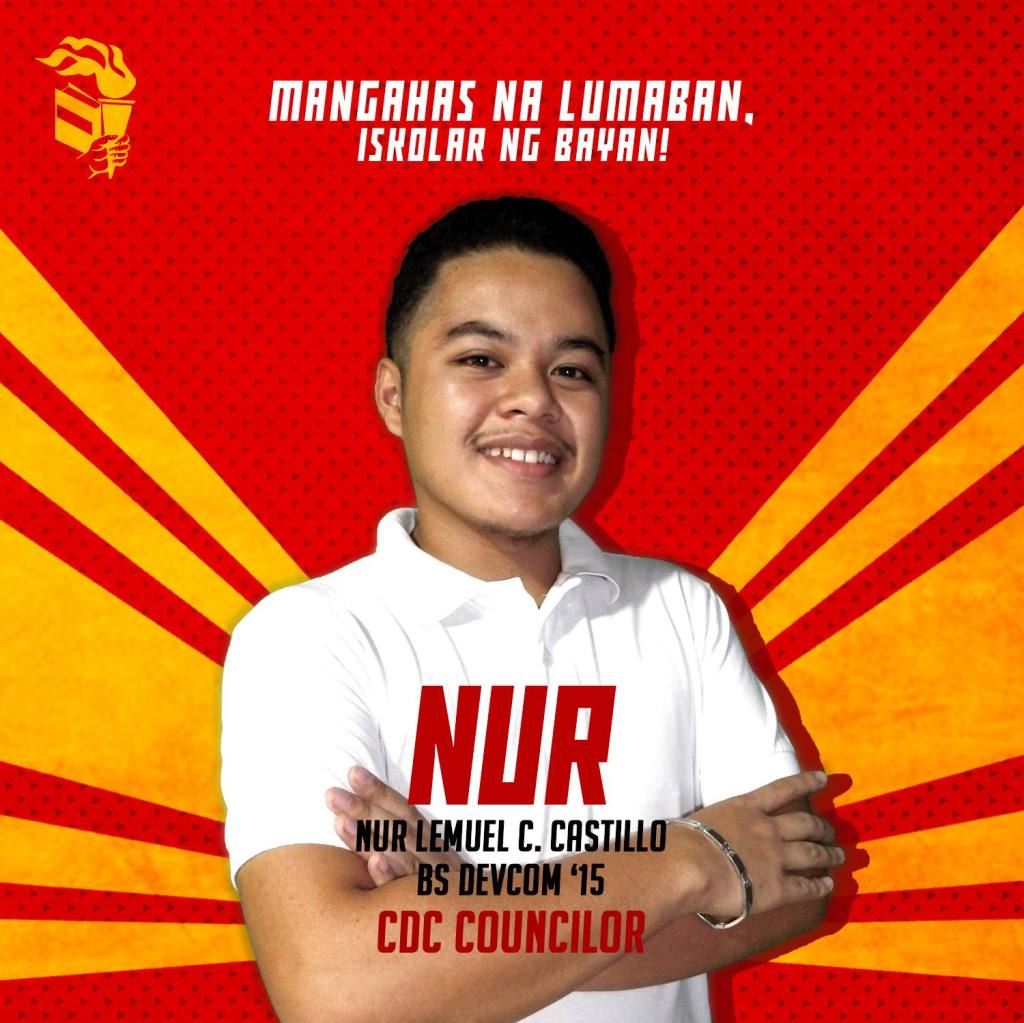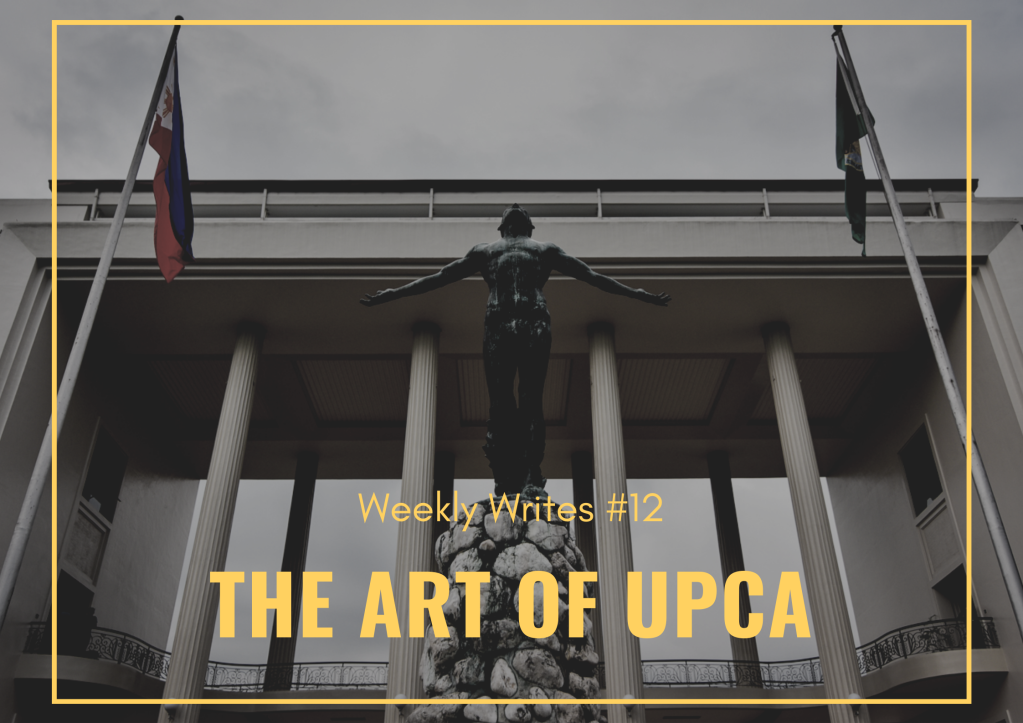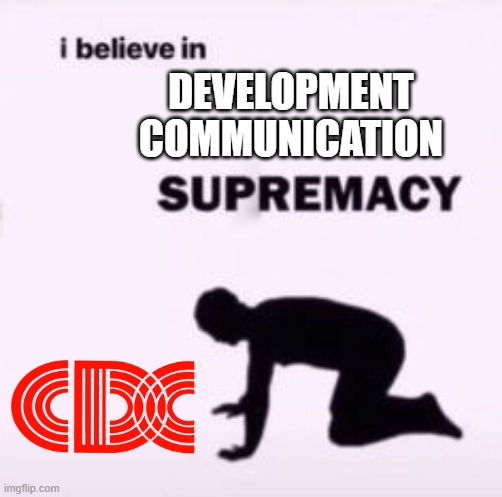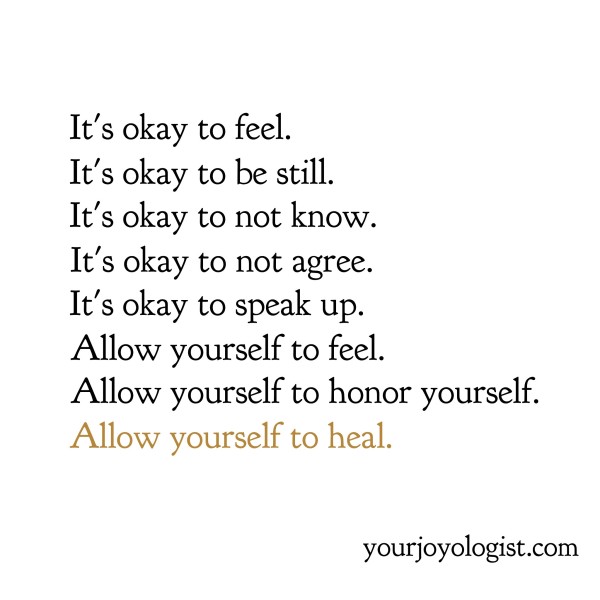
For this week’s entry, I present to you the story of Mr. Lemuel “Lem” Castillo, a BS Development Communication alumnus from the University of the Philippines Los Baños.
On January 9, 2022, I interviewed one of DevCom’s pride—an energetic, witty, and versatile man. I first saw him during the Freshman Orientation, and I was honestly amazed by what he has achieved and contributed to the field of Development Communication. His talk made me really look up to him, and I got to learn the ropes of DevCom in the real world.
Several weeks later, I encountered him again. But this time, it was during the application process of UPLB Development Communicators’ Society (DCS or DevCom Soc)—the premier and home organization within UPLB’s College of Development Communication. Turns out, he is an alumni member of DCS, while I am a current resident member. That became another common denominator that allowed me to reach and interview him.
The one with burning passion
I consider Mr. Lem Castillo a natural in the DevCom game.
Back during his high school years, he was the editor-in-chief of their school publication and was a campus journalist. Although he was not aware of being an aspiring development communicator, he had experiences that were highly related to the field of development communication.
Unaware of the course BS Development Communication back then, he initially heard it from his cousin who was studying in UPLB back in 2012. As Mr. Lem stated (non-verbatim), “dito kasi sa Pilipinas hindi ganoong celebrated ang communication courses—ang sine-celebrate nilang courses ay engineering, accountancy, at medicine. Alam ko namang hindi ako mag-eenjoy ‘pag ayon ang kinuha ko. At dahil mahilig ako magsulat, naramdaman ko na nasa DevCom ang passion ko.”
So then, in 2014, he chose BS Development Communication as his priority course in UPLB which was his first campus choice. He passed the UPCAT and welcomed the boundless world of DevCom.
The one with persistence and resourcefulness
When I asked him if there were challenges that he experienced when he was still studying, Mr. Castillo did not hesitate to say yes.
“Pinakanahirapan ako noon sa teknikal na aspeto ng kurso. Bilang mag-aaral kasi ng Development Communication, may expectation sa atin na maging sufficient sa paggamit ng tools at software. Hindi gaya ng iba kong mga kaklase noon, hindi ako masyadong magaling doon. Ngunit natutunan ko din ito over time.” He said.
Aside from that struggle, he shared having to get open source versions of software such as those of Adobe, for the reason that he couldn’t afford to purchase the licensed versions. He also cited the struggle of editing video materials as the laptop he used at that time had low specs.
He had to learn everything from scratch which I personally admire as a DevCom student. Not only was he eager to improve on things that were new to him, he was also very resourceful from the beginning—easily possessing one quality a development communicator should have.
When he finally mastered the art of using multimedia and creativity software, he proudly said being able to make publication materials—something that he was definitely able to use in his work.
The one with leadership and an organization

As a BS DevCom student and current resident member of UPLB Development Communicators’ Society, I got curious about Mr. Castillo’s journey in DCS and what it contributed to him as a development communicator.
Mr. Castillo recalled that the aforementioned organization trained him as early as a student to apply what he learned in his classes.
“Natuwa ako noon kasi yung mga theoretical concepts na inaaral namin sa klase, nagamit ko sa mga aktibidad ng DCS. Sa mga event kasi ng org gaya ng iRead at Tarabyangan, yung mga natutunan ko sa mga lessons namin naihaharap namin sa mga tao. Dahil sa DCS, natuto ako makihalubilo sa iba’t ibang klase ng tao. Natuto akong mag-adjust, makipag-interact nang maayos, at na-train ako to work professionally at ito ay isang bagay na dinala ko rin sa trabaho ko.”
He also added the contribution of the organization to his endeavor as a student leader.
During the second semester of academic year 2017-2018, he ran as a councilor. After a sem, he got elected as the college university representative. And in the academic year 2019-2020, during the following semester, he got elected as CDC SC chairperson. He quotes that this was not only a personal victory—it was a milestone to UPLB DCS as well. He was the first DevCom Soc member to hold the position of CDC SC chairperson after 10 years again.
The one who loves and serves people

In the month of December, year 2019, Mr. Castillo experienced every isko and iska’s dream. He wore the famous Sablay—the official academic costume and garment of the university that marks the end of a student’s stay in UP and marks the beginning of a UP graduate’s undertaking in the real world.
Clueless to the line of work he wanted to pursue, Mr. Castillo explored career openings. He scrutinized each one, finally taking the opportunity offered to him by the Department of Science and Technology (DOST). He worked in the field of science communication—creating publicity materials, and interviewing Filipino inventors and scientists about the technology they made.
Surprisingly, even though it was only his first job, Mr. Castillo asserted that he exceeded the expectations of his boss—crediting it to the training that UPLB’s Development Communication had provided him.
“Pagka-gradute ko, madami nang opportunities na lumapit sa akin. Nagulat ako kasi kahit unang trabaho ko pa lang, relatively, mataas na yung salary ko. Tapos doon pa sa DOST, ako lang yung nag-iisang aplikante na DevCom graduate, at ako ang napili. Kahit unang trabaho ko pa lamang, nagawa ko nang mabuti yung mga responsibilities ko dahil sa lahat ng natutunan ko sa DevCom.”

He got promoted thrice already and is currently working as a senior science specialist at Technology Application and Promotion Institute (TAPI). He is currently the head of the Technology Innovation for Commercialization or TECHNICOM, a flagship program of DOST.
“Dito kasi sa PIlipinas madami naman tayong Filipino scientists and inventors. Ang problema lamang ay hindi nai-cocommunicate nang maayos ang kanilang research outputs and technological breakthroughs. Ito naman ang ginagawa namin. We look for research and development projects around the country, looking for technology created by Filipinos—o yung mga teknolohiyang gawang Pinoy—tapos tinutulungan din namin sila in a form of grant and we fund the enhancement, intellectual property protection, field and market testing, and market-readiness ng mga technologies na ito.”
The program started way back in 2003, initially handled by DOST. It was then transferred to TAPI in 2013. As of the moment, there are about 60 technology programs under TAPI’s wing—with applications in agriculture, marine, energy, water, smart management of electricity, health and diagnostic technologies, food security, artificial intelligence (AI), and digital industry.
Just like what Mr. Castillo has said, the program is a testament that they are doing the mandate given by the government.
The one with mastery in Science Communication
Undoubtedly, Mr. Lem’s supervision in TAPI reached great heights. When I asked him what the secret was behind his success in handling the program, he said that it was going back to the basic principles of science communication.
“Ang science communication kasi ay mas democratized take on Science. Dito, yung scientific and technical terms, iniisipan ng paraan kung paano maipapaintindi at communicate sa mga tao. Kailangan mo lang balikan yung principles of science communication. Popularization, translation–ilan ito sa mga ways ng pag-communicate ng Science sa masa. Importante dito na balikan yung basics na pinag-aralan noon sa DevCom.”
Subjects such as DEVC 153, DEVC 154, and DEVC 136 have been a great help to Mr. Lem.
Although during his high school years he didn’t really like Science, he cites that with the DevCom courses centered around science communication, he eventually learned to love and master it.
“Dahil sa Development Communication, I get to enjoy and appreciate Science.”
Mr. Castillo’s Most Memorable – A Bonus
Mr. Castillo is a living proof that DevCom indeed comes a long way.
But… What about his favorite moment when he was still a student?
Back during his college days, Mr. Castillo loved fieldwork and DevCom outputs. But there was this particular one that he couldn’t forget. It was a project in DEVC 136 (Multimedia Production and Management).
In 2018, they looked for a community that had a problem that can be solved with communication. They went to Pangil, Laguna, to help a community of single mothers. They educated the single mothers about the privileges of a single parent and created materials that taught the single mothers about the laws beneficial to them.
But that was not only the thing that they helped the single mothers with. As they went along with their project, they even helped the community reach a national organization–expanding the single mothers’ horizon to the community of single parents.
Currently, the national organization formed the “Solo Parents Partylist”, the first political group in the Philippines to represent single parents.
This was the victory of both parties. This materialized ‘development’ in development communication.
“Nakakatuwa kasi dati ginagawa namin yung project para sa grades pero unconsciously pala, natutulungan na namin yung mga tao. Kaya palang baguhin ng isang school requirement ang isang community.”
The one embodying development and growth
BS Development Communication equipped Mr. Castillo with skills he otherwise wouldn’t have learned in other disciplines. May it be technical, personal, and organization skills, Development Communication brought upon lessons, activities, and actual experiences to Mr. Castillo that became a foundation for his work, and it provided him with a channel wherein he got to pursue his passion.
Development Communication trained him to be independent, creative, intelligent, resourceful, persistent, and passionate. DevCom trained him to learn through the hardships, continue innovating, and be the best person he can be not just for himself, but also to be able to do the responsibilities of a development communicator efficiently, and be able to bring change upon people and communities.






















